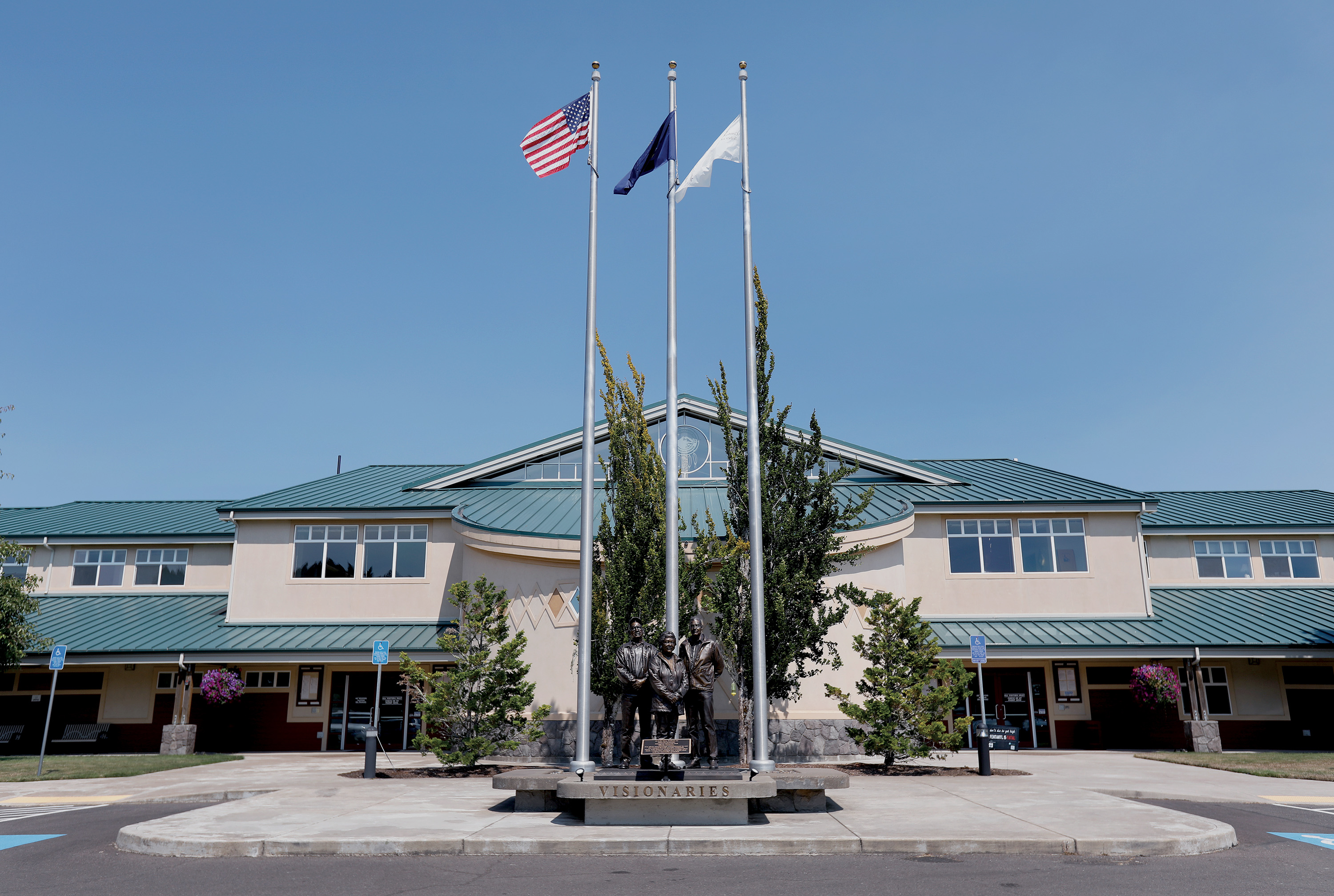Tribal Government & News
Tribal Council suspends herbicides use on housing and campus grounds

By Nicole Montesano
Smoke Signals staff writer
Tribal Council has decided to suspend the use of herbicides and pesticides on Tribal housing and campus grounds following a campaign by Tribal members.
The suspension does not extend to lands managed by the Natural Resources Department.
Tribal Council member Matthew Haller said the issue has been brought to council numerous times over the last several years.
“There’s been constant conversations about doing better for the environment as stewards of the land and people brought forward their wishes that we would just stop, because it goes into the waters and soils, and it’s just not the best thing for our lands,” he said.
Haller credited Tribal member Amber Eastman in particular, for her work “to make people understand the actual harm that it does to the environment.”
Tribal Council has asked staff for recommendations for alternative ways to maintain housing and campus grounds, Haller said. He added that he envisions “a more community-driven approach,” such as the community clean-up days held in Willamina.
Eastman, who has made it a personal mission to stop the Tribe’s use of herbicides, said she is “deeply grateful for this decision.”
“I don't believe it emerged from politics but grew from the voices and hearts of our community members,” Eastman said in an email. “It came from Elders, youth, aunties and uncles who raised questions, expressed concerns, and stood strong for the health of our land and future generations. I sincerely thank our current Tribal Council for genuinely listening and leading with courage and accountability.”
The decision was announced during the Legislative Action Committee meeting on Tuesday, April 8.
“I saw that Amber Eastman had worked really hard this last week, and just did a bunch of weeding already in housing,” Tribal Council member Lisa Leno said. “So, it’s exciting to see our community stepping up and taking responsibility for maintaining those areas in a different way.”
Eastman said she has already seen Tribal Facilities Department crews hand-weeding, “demonstrating care, respect and intention.”
“These practices reflect the ways our ancestors have always managed and healed the land through respectful relationship rather than control,” Eastman said. “I pray our path continues to prioritize community-driven collaboration and deep listening. I hope we uplift and center traditional ecological knowledge and involve our youth, nurturing their relationship with the land. My dream is to see every acre of Tribal land cared for in ways that reflect who we truly are: Resilient, sovereign and deeply connected to this place.”
In her presentation to Tribal Council, Eastman said she was speaking “as a descendant of those who fought to reclaim this land, as a steward who believes in our responsibility to protect it and as a survivor who knows firsthand the consequences of environmental poisoning.”
She noted that the issue has been brought up numerous times in the past.
“For generations, our people have relied on the land to provide us with medicine, food, and materials for our cultural practices,” Eastman told the council. “Yet, the widespread use of pesticides does not discriminate between what is invasive and what is sacred…Pesticides kill traditional plants like camas, wapato, and wild strawberries – plants that have sustained our people for generations.”
She told the council that when the Tribe stopped using glyphosate earlier this year, it switched to another herbicide, called Surflan.
“It has been proven that Surflan affects and disrupts mycorrhizal networks,” Eastman said. “These are the fungal communication networks of tree roots through which our ancestral trees communicate, send distress signals and provide vital networks.”
She argued that some other Tribal nations have banned the use of herbicides and pesticides altogether, and that Grand Ronde should follow suit.
Eastman said she is proposing creating a community-led volunteer stewardship program called ‘Weed Warriors’ or a similar name that reflects the “spirit, resilience and values of our people … to work in close partnership with the Facilities Department.”
She envisions it bringing in volunteers to help with weeding, as well as providing opportunities for Tribal members and young people to participate in “land-based wellness and learning.”
